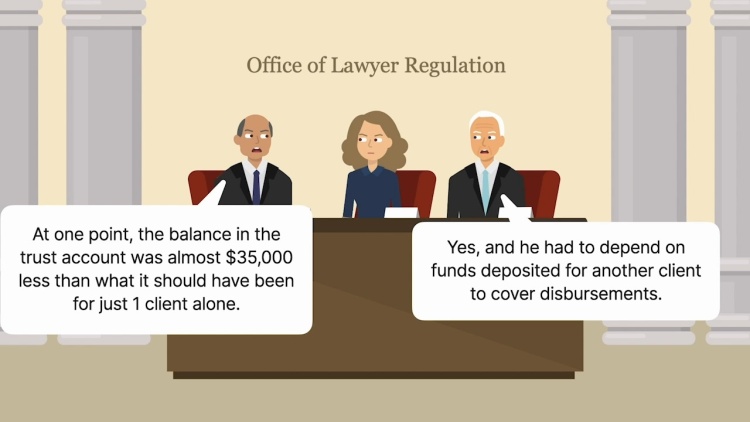In the Matter of Constant
Wisconsin Supreme Court
390 Wis. 2d 1, 937 N.W.2d 599 (2020)
- Written by Rose VanHofwegen, JD
Facts
Personal injury lawyer Terry Constant practiced law for over 50 years without a disciplinary complaint. But when Constant bounced a check to a client written on his client trust account, the bank reported it to the Office of Lawyer Regulation (OLR). The OLR initiated an investigation and examined about five years’ worth of Constant’s past trust-account transactions. Constant provided the OLR with incomplete account and client records that sometimes conflicted with each other. Constant also told the OLR he had not withdrawn cash from the trust account, but the records showed he had made multiple cash withdrawals as well as transferred funds electronically to his business account just before he bounced the check. Despite using Quicken, Constant’s ledgers did not accurately track balances or the dates, amounts, and clients associated with transactions. Records from earlier years showed he disbursed funds on behalf of a particular client, including a check written to Constant himself, before depositing funds for that client’s case into the trust account. Over time, Constant had repeatedly withdrawn cash or transferred funds out without identifying the purpose or client. At one point, the trust-account balance fell more than $30,000 below what should have remained in the trust account for one client alone. To cut checks for that client, Constant had to deposit funds that belonged to another client. The OLR filed a complaint charging Constant with misconduct under the rules governing client trust accounts and safekeeping client funds. Constant took a “no harm, no foul” attitude as his clients and their lienholders had eventually received full payment, and blamed the accounting errors on Quicken and the bank. The referee concluded that Constant committed eight serious rule violations and recommended a five-month suspension, plus additional continuing legal education (CLE) with six hours related to trust-account management, and continued monitoring of his trust account. Constant appealed, and the OLR cross-appealed, requesting a one-year suspension instead of only five months.
Rule of Law
Issue
Holding and Reasoning (Per curiam.)
What to do next…
Here's why 907,000 law students have relied on our case briefs:
- Written by law professors and practitioners, not other law students. 47,100 briefs, keyed to 996 casebooks. Top-notch customer support.
- The right amount of information, includes the facts, issues, rule of law, holding and reasoning, and any concurrences and dissents.
- Access in your classes, works on your mobile and tablet. Massive library of related video lessons and high quality multiple-choice questions.
- Easy to use, uniform format for every case brief. Written in plain English, not in legalese. Our briefs summarize and simplify; they don’t just repeat the court’s language.





